In this blog post, Shambhavi Kumar, a student of Jindal Global Law School, Sonipat, analyzes the different aspects of building regulations in New Delhi.

Any large scale construction project undertaken in the area of New Delhi must have the following approvals, clearances, sanctions and No Objection Certificates at the five stages of the construction of the proposed project, from the concerned authorities:
PRE-SANCTION STAGE
Project Feasibility
Approvals from the Delhi Development Authority: The Delhi Development Authority must approve the plan for land use of the plot and the Ministry of Urban Development when the land use is shown as Government land in the Master Plan of Delhi[1]. The land use plan for the land area is to be notified by the Ministry of Urban Development after approval from the Delhi Development Authority.
When the land allotment letter needs to be changed on grounds of it not being compatible with or permitted by either the Master Plan of Delhi[2] or the Zonal plan, i.e., location of the plot then the land use plan needs to be approved by the Delhi Development Authority followed by a notification from the Ministry of Urban Development.
Construction or augmentation of departmental residential pool accommodations by either a Ministry or a Department requires a No Objection Certificate from the Directorate of Estate in the Ministry of Urban Development. The Central Public Works Department needs an additional, approval for General Pool Residential Accommodation from the Ministry of Urban Development. The case is then forwarded to a Technical Committee of the Delhi Development Authority for approval.
Approval by the Delhi Development Authority and the Ministry of Urban Development is necessary to get relaxations, in public works or projects of national importance, on the grounds of coverage, density, setbacks, Floor Area Ratio, or the height as prescribed in the Master Plan of Delhi[3].
Approval from the Airport Authority of India: If the construction project is located within the 20km radius of an airstrip or funnel, then there is a requirement of a No Objection Certificate on the height clearance of the building, structure or masts included in the plan of the project. This certificate is issued by the Directorate of Air Traffic Management of the Airport Authority of India.
Approval from the Land and Development Office: When land owned by the Land and Development Office, is obtained on a lease and no construction work has been undertaken during the time fixed in the lease allotment letter, then there is a need to obtain a No Objection Certificate from the Land and Development Office.
SANCTION STAGE
Lay Out Plan or Local Area Plan or Urban Design Plan (proposals of a large scale or multi- building projects)
Approval from Local Authority and Body: The Delhi Development Authority, a local authority, as well as, the Municipal Corporation of Delhi or the New Delhi Municipal Corporation, which are the local bodies, need to approve the project under the provisions of the Delhi Building Byelaws, the Master Plan of Delhi as well as the Local Body Acts. In Navin Bhatia and Ors. v. Lt. Governor of Delhi and Ors.,[4] a petition was filed to restrict illegal construction that was completed without a sanctioned plan. The Court held that according to the Municipal Corporation of Delhi Act[5], the layout plan of a project must be approved before starting any construction work. Sanctioning of a layout plan cannot be done retrospectively as it would negate the purpose of such authorisation. 
Approval from the National Monument Authority: If the project or even a part of it lies within a radius of 300 meters from the declared boundary of a monument that is protected by the Ancient Monument Act[6] and which is controlled by the Archaeological Survey of India requires a No Objection Certificate issued by the National Monument Authority or the Archaeological Survey of India.
Approval from the Forest Department: If the land use proposal included activities such as tree cutting or felling of trees or transplantation of trees at the site, then it is mandatory to get the approval of the Forest Department of the Government of the National Capital Territory of Delhi.
Approval from the Heritage Conservation Committee: If the proposed land use plan involves or has any link or relation to any of the listed heritage precincts or buildings, which are notified by the Delhi Development Authority, the New Delhi Municipal Corporation, the Municipal Corporation of Delhi from time to time, or have any such heritage site, precinct or building within its compound, then it requires an approval from the Heritage Conservation Committee.
Approval from the Central Vista Committee: If the proposed project lies within the Central Vista boundary in the New Delhi Municipal Corporation, then such a project would require approval from the Central Vista Committee.
Approval from the Delhi Metro Rail Corporation: If the proposed project site lies along or on Metro alignments or falls within 20 meters, on any side of any metro alignment or the Mass Rapid Transit System corridor, i.e., the outside line of any metro line or structure, then it is necessary to get a No Objection Certificate from the Delhi Metro Rail Corporation. In Registrar, University of Delhi v. Union of India and Ors.,[7] all other approvals had been obtained for the construction of a Group Housing project, but the commencement of its construction was delayed due to pending approval of the Delhi Metro Rail Corporation alone.
Approval from the Government of National Capital Territory of Delhi: If a proposed project falls within a radius of 500 meters on any sides of a Major Surface Transport Corridor such as the Bus Rapid Transit System, then there is a necessity of aNo Objection Certificate issued by the Government of National Capital Territory of Delhi.
Approval from the Road Owning Agencies: If the land use plan includes activities which would result in cutting of a road or footpath, any other service lane or any person’s Right of way or passage, then such a plan would require a No Objection Certificate from the concerned Road Owning Agency, which may be the Delhi Public Works Department, the Municipal Corporation of Delhi, the New Delhi Municipal Corporation or the Delhi Development Authority.
Approval from the Traffic Police: If the project proposal states that it would disrupt the movement of general traffic or the circulation pattern of traffic either temporarily or permanently, either during the construction process or after it, it is important to get a No Objection Certificate from the Delhi Traffic Police.
Approval from the Unified Traffic and Transportation Infrastructure (Planning & Engineering) Centre: If any agency in Delhi has road engineering or infrastructure implications, in any transportation projects and transportation engineering solutions, then it requires clearances from the Unified Traffic and Transportation Infrastructure (Planning & Engineering) Centre of the Delhi Development Authority.
Approval from the Chief Fire Officer: The Delhi Building Byelaws, as well as the National Building Code, stipulate that all land use proposals must, at the layout plan stage itself, require the approval of and a Fire Safety Certificate from the Chief Fire Officer or Director of the Delhi Fire Service[8]. In the case of Gyan Prakash Sharma v. Delhi Development Authority and Anr.,[9] the Court has stated “Bye-laws 6.7.2 and 6.7.3 which clearly postulate that before granting the said permission or sanction the Authority has to seek clearance from Delhi Fire Service or DUAC as the case may be. Refusal or sanction is, therefore, linked with the condition of seeking approval from these authorities…”[10]
Approval from the Chief Controller of Explosives: If the building that is proposed to be constructed is of a hazardous nature or if it is meant to store or contain hazardous materials then the plan requires the approval of the Chief Controller of Explosives, Nagpur.
Approval from the Chief Inspector of Factories: If the proposed construction is that of an industrial building, then it requires the approval of the Chief Inspector of Factories.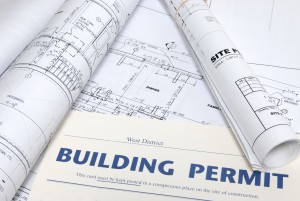
Approval from the Delhi Urban Art Commission: The proposed layout plan must get the approval of the Delhi Urban Art Commission[11] as required by the Delhi Urban Art Commission Act[12]. The necessity of this approval has been reiterated in the case of Gyan Prakash Sharma v. Delhi Development Authority and Anr.[13]
Environment Clearances: All buildings and construction projects that have a proposed built up area of more than 20,000 square meters as well as all area development projects and townships that are proposed to cover an area of more than 50 hectare or a proposed built up area more than 1, 50,000 square meters require environmental clearances issued by the Ministry of Environment and Forests and a State level expert committee[14].
BUILDING PERMIT STAGE
Sanction
Approval from the Local Authority or Body: Local authorities and bodies such as the Delhi Development Authority, the New Delhi Municipal Corporation and the Municipal Corporation of Delhi must approve the building plans and sanction the building permit as provided for in the Delhi Building Byelaws, Local Body Acts and Master Plan of Delhi. The local body must then forward the proposal to various other relevant authorities[15]in the city as may be needed for the grant of approvals and No Objection Certificates necessary for granting of the building permit. In the case of Arvind Singhal v.Max Therapiya Limited,[16] the Court held that the repair and construction work carried out by the defendant, was not sanctioned by the Municipal Corporation of Delhi and was illegal. The Court stated the “In the present case; it appears that the MCD grants no specific written permission. I feel, given facts and circumstances of the present case, the permission of MCD is required.”[17]
Approval from the Deputy Commissioner of Police (Licensing): Proposals that include the construction of an Urban Auditorium, a theatre or a large hall with a seating capacity that exceeds 50 persons and is meant to be used for public amusement requires an approval or a No Objection Certificate from the Deputy Commissioner of Police (Licensing).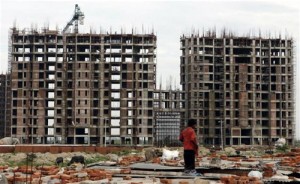
Approval from the North and South Block Advisory Committees: The advice and approval of the North and South Block Advisory Committees is required when the proposed plan involves any alteration or addition to be made to an Urban Development[18] in the area covered by the New Delhi Municipal Corporation since these buildings are deemed to be important heritage structures.
Approval from the Power Distributing and Supplying Agency: The power is distributing, and supply agencies sanction electrical load, electrical substation, and transformers. Additionally, temporary electricity connection is needed before the commencement of construction. To obtain the sanctions mentioned above, the approval of such agencies is essential. These agencies include the New Delhi Municipal Corporation, the Bombay Suburban Electric Supply, and the New Delhi Power Limited.
Approval from the Water Supplying Agency: Water supply agencies provide water supply, its drainage as well as sewer connections. A temporary connection is needed before construction commences. Hence, the approval of the water supply agencies is required at this stage. These agencies are the New Delhi Municipal Corporation for New Delhi Municipal Corporation area and the Delhi Jal Board for rest of Delhi.
CONSTRUCTION STAGE
Permission from the Central Ground Water Authority: Permission of the Central Ground Water is essential to extract ground water. Such permission is granted according to the guidelines[19] provided by the Environmental Protection Act.[20]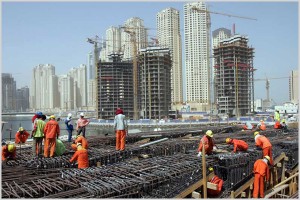
These guidelines govern extraction of ground water by energized means such as digging, or installation of bore wells and for water connections on the project site for the supply of drinking water in both notified as well as non-notified areas for households, industries as well as infrastructure projects.
Intimation to be given to the Local Authority or Body: The applicant who has been granted the building permit must intimate the local Authority or body, in this case, the Delhi Development Authority, the New Delhi Municipal Corporation and the Municipal Corporation of Delhi, in the prescribed written form,[21] seven days before commencement of construction at the project site. The authority or body must acknowledge such intimation before construction is started.
Plinth Level Notice: Submission of a Plinth Level Notice[22] by each owner or lessee is essential. Such a notice should be given to the local authority or body, in this case being the Delhi Development Authority, the New Delhi Municipal Corporation and the Municipal Corporation of Delhi. The Ministry of Urban Development and Poverty Alleviation, of the Government of India, abolished the necessity of C & D Certificates[23]and in its place introduced the process of intimation of completion of the proposed work up till the plinth level.
CERTIFICATE STAGE
Completion-Cum-Occupancy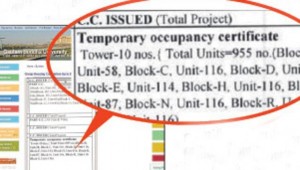
Completion-Cum-Occupation Certificate from the Local Authority or Body: Before the building, or any part of it is occupied, there is a requirement to obtain a Completion-cum-Occupancy Certificate.[24] This certificate is issued by the local authority or body such as the Municipal Corporation of Delhi, the New Delhi Municipal Corporation and the Delhi Development Authority. The proposal is forwarded to the local body to various concerned authorities in the city that needs to issues project-specific approvals and No Objection Certificates that are required for the Completion-cum-Occupancy Certificate to be granted.
Approval from the Lift Inspector: If there are lifts installed in the constructed structure, then it is necessary to get the No Objection Certificate of the Lift Inspector, of the Government of the National Capital Territory of Delhi before the Completion-cum-Occupancy is granted.
Conclusion
In the event of non-compliance with the abovementioned requirements, any construction would be deemed illegal and would need to be demolished as has been held by various Courts in several decisions.
In Dr.Kapil Sethi Vs. Dr. Ajay Gambhir and Ors.,[25] the respondents had raised an unauthorized construction over the sewer lines. They had not obtained permission from either the Municipal Corporation of Delhi , the Delhi Development Authority, or the concerned local bodies, before the construction. The Court ordered the demolition of the said construction on grounds that it was illegal since it was not sanctioned by the relevant authorities.
In the case M.I. Builders Pvt.Ltd v. Radhey Shyam Sahu and Ors.,[26] the Apex Court held that there should be no consideration shown to the builder or any other person in case the construction is not authorized. This holding of the Court has now, almost, become the rule of law.
In Ram Awatar Agarwal v. Corporation of Calcutta,[27]the Court had directed the demolition of an entire multi-storeyed building that was constructed in violation of the relevant building rules.
In the case of Dilip Bhandari v. The Commissioner, Corporation of Chennai, Rippon Buildings,[28] a Madras High Court Division Bench upheld an order for demolition of an illegal construction and stated that construction that is not duly sanctioned or authorized should not be overlooked on account of substantial investment by the builder.
In Palani Hills Conservation Council etc. v. The State of Tamil Nadu,[29] a Division Bench of the Madras High Court directed demolition of a building constructed by a hotel contrary to the plan sanctioned by the second respondent therein.
[divider]
References:
[1] Master Plan for Delhi 2021, Delhi Development Authority, 7 February 2007, reprinted May 2010.
[2] See id.
[3] See id.
[4]Navin Bhatia and Ors. v. Lt. Governor of Delhi and Ors., 2008 DLT 37 150.
[5]Municipal Corporation of Delhi Act, 1957 § 313.
[6] Ancient Monument Act, Act 7 of 1904.
[7] Delhi Metro Rail Corporation. In Registrar, University of Delhi v. Union of India and Ors., 2015 MANU DE 1272.
[8] Delhi Building Bye Laws, 1983 § 6.7.2.
[9]Gyan Prakash Sharma v. Delhi Development Authority and Anr.,2002 DLT 97 205.
[10] See id.
[11] Delhi Building Bye Laws, 1983 § 6.7.3.
[12] Delhi Urban Art Commission Act, Act 1 of 1974.
[13] Supra note 9.
[14] Delhi Pollution Control Committee
[15] As mentioned in Stage II.
[16]ArvindSinghal v.Max Therapiya Limited, 2014 DRJ 146 128.
[17] See id.
[18] An Urban Developmentitorium, a theater or a large hall with a seating capacity that exceeds 50 persons and is meant to be used for public amusement.
[19] Environmental Protection Act, 1986, Guidelines 15 November 2012.
[20] Environmental Protection Act, Act 29 of 1986.
[21] Delhi Building Bye Laws, 1983 § 7.2.1, Form III, Appendix ‘B.’
[22] Delhi Building Bye Laws, 1983, Annexure ‘C’, This includes information regarding completion of proposed work till the plinth level as prescribed in the Performa, supplemented by the stipulated requisite documents, determined fees and charges that are mentioned therein.
[23] Notification no.S-O1154 (E), 21 November 2001.
[24] Delhi Building Bye Laws, 1983 § 7.5.1.
[25]Dr.KapilSethi Vs. Dr. Ajay Gambhir and Ors.,2006 DLT 127 381.
[26]M.I. Builders Pvt.Ltd v. RadheyShyamSahu and Ors,1999 MANU SC0999, para 73.
[27]Ram Awatar Agarwal v. Corporation of Calcutta,1999 SCC 6 532.
[28]Dilip Bhandari v. The Commissioner, Corporation of Chennai, Rippon Buildings,2005MLJ 1 46.
[29]Palani Hills Conservation Council, etc. v. The State of Tamil Nadu, 1995 WLR 2 737.
 Serato DJ Crack 2025Serato DJ PRO Crack
Serato DJ Crack 2025Serato DJ PRO Crack


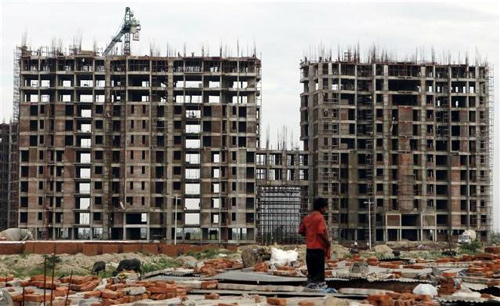






 Allow notifications
Allow notifications


